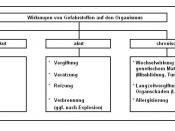INTRODUCTION
In companies today, it is almost necessary to expand internationally in order to maintain a healthy and successful business. Some become multinational enterprises (MNE) by opening operations in foreign nations. When a company opens operations within the borders of another nation, they must comply with the regulations and often the culture of that nation. Failure to do so could risk the survival of the business. A company's policies and processes must be reevaluated for each nation. They must also be concerned about how a foreign nation's culture and ethics affect their own. They may be operating legally within that nation but are in violation of the ethical standards of their own. An issue that must often be handled delicately is that of labor. The standards may vary in areas such as safety regulations, work hours, vacation time and child labor. A comparison of the United States with other parts of the world may express the need for adaptability in companies that plan to expand internationally.
SAFETY REGULATIONS
In business society today, it is commonplace for the work setting to be filled with statements of how to comply with this law and how to be in accordance with that regulation. Workplace safety is becoming more of an importance to the United States government than ever before. The U.S. is not alone; many countries around the world are implementing similar regulations. A company must know which regulations to comply with in order to remain in business in a foreign nation.
The U.S. has long been a leader of safety sanctions on companies in the modern era of business. America has instituted one of the most successful agencies in history to help enforce these regulations: Occupational Safety & Health Administration (OSHA). This administration was formed in 1971, and has since continued to...



International Labor Issues - Includes topics to be considered when a U.S. company becomes a multinational enterprise.
Inadvertantly hit negative rating. No intention to do so.
0 out of 0 people found this comment useful.